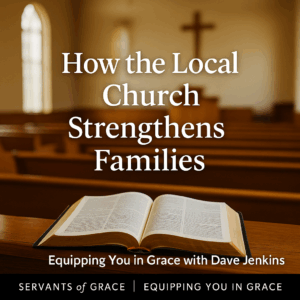⏱️ Estimated Reading Time: 3 min read
Do you have a commentary set on the Psalms? Surely, out of any book in the Bible, you most likely have a book on the Psalms. From time to time, you may pick it up off the shelf, and your heart is strangely warmed. As Calvin put it, the Psalter is an ‘anatomy of the human soul.’ There is a Psalm for every stage of your Christian life. We have our go-to-Psalms when we are in the valley of despair, or on the mountain peak of joy. But what is the primary focus of the Psalms? Or rather, who is the primary focus of the Psalms?
In The Psalms: A Christ-Centered Commentary, Christopher Ash, over four volumes, gives us a wonderful exegetical and devotionally rich study of each 150 Psalms. In the preface to volume 2 of his works, Ash writes:
“I have become persuaded that Jesus Christ is the subject and object of the Psalms, that His majestic divine-human person is woven into the warp and woof of the Psalter, and that He is the preeminent singer of Psalms, the focus of the Psalter, and the one without whom the Psalms cannot be understood aright. I therefore want to place Christ in the foreground of our reading of every Psalm and to do so in ways that are shaped by the New Testament” (vol. 2., xiii).
What sets this commentary apart from any other set that I have read is its beautiful, faithful Christ-centeredness. Ash has a remarkable way of draw the reader into the text and setting Jesus Christ, in all His fullness, before our eyes. In each Psalm, Ash digests it in three parts: First, in orientation, the flow and structure of the Psalm is opened up. Second, through textual analysis, the Psalm is exegetically dealt with in a grammatical, historic, and redemptive fashion. Finally, Ash concludes the Psalm with a devotionally rich reflection and response in light of Christ and His demands on His people. All of this is done within ten pages, or so, allowing this set to be used as an excellent supplement to your devotional time through the Psalms.
One objection to this Christ-centered interpretation of the psalms may be found in the Psalmists’ confession of their sins and need for forgiveness. How can this text find its fulfilment in Christ, since He is the sinless, holy One, who needs no forgiveness? In the opening chapter, Ash handles this objection well. Simply put, Ash writes:
“My conclusion is that [Jesus] does so as the covenant head of a sinful people, just as He submitted to John the Baptist’s baptism of repentance. The shadow of the cross fell on him, who had no sin, as he prayed these psalms and our sin was imputed to Him” (vol. 2, xv).
To conclude, I would highly recommend this set on the Psalms. Both the young and mature in the faith can benefit deeply from this work since the substance is the gospel of Jesus Christ in the Psalter. The Christ of the Psalms is the Christ who has come into this world, lived the righteous life that we could never live, died in the stead of wicked sinners, was buried, raised from the dead, and is now alive and reigning at the Father’s right hand. You can learn more about Jesus Christ as you work through this marvelous set.
Joshua J. Mills is married to his beloved Kyla and they have two children: Isaac and Lydia. Outside of the home, Joshua has the privilege of serving as pastor at Trinity Baptist Church (Burlington, Ontario) and as a guest lecturer through Carey International University of Theology.




